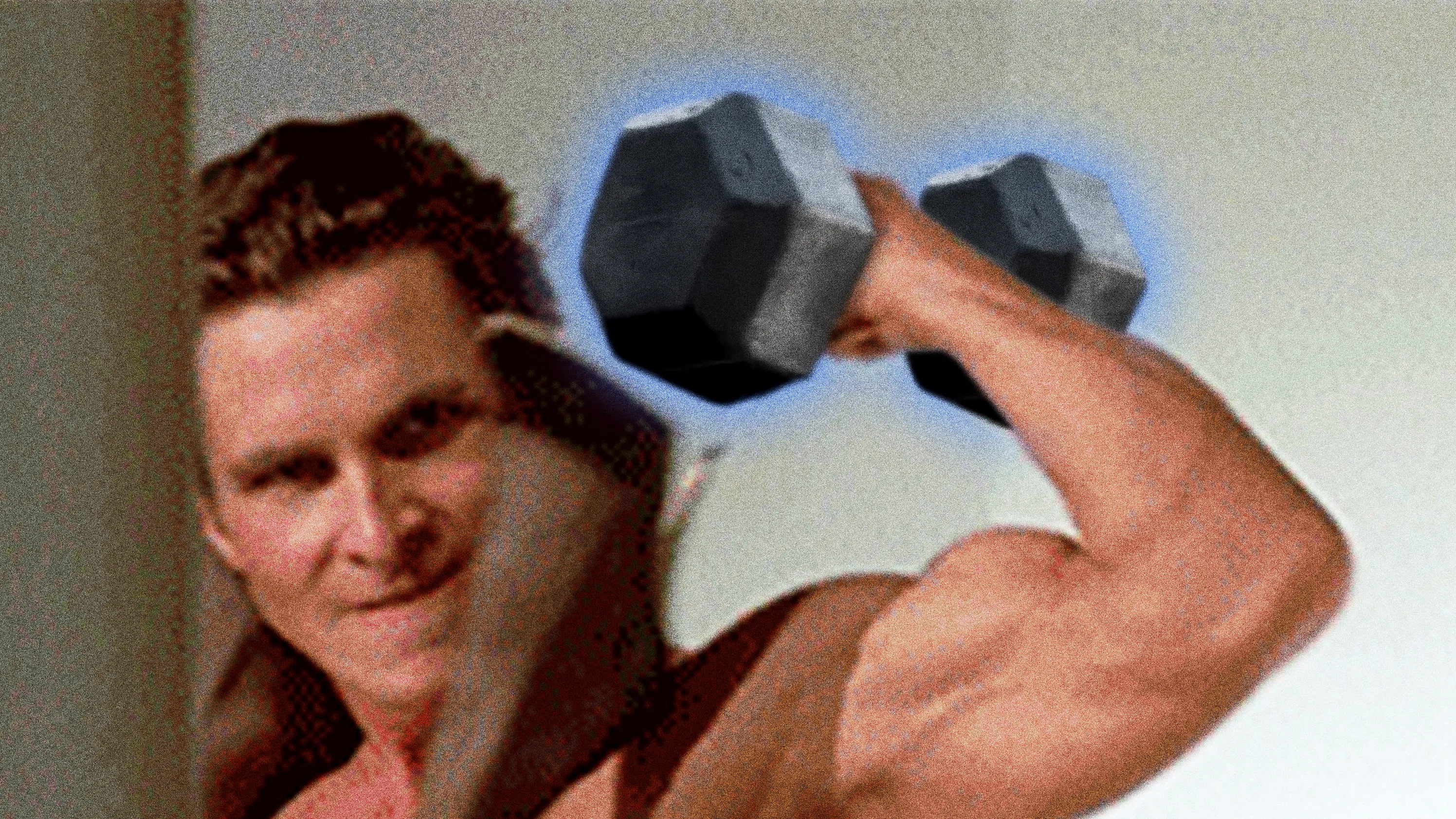Copyright gq

In a world obsessed with visible gains—bigger biceps, chiseled abs, sharper jawlines—it’s easy to forget about the ones you can’t see. But according to recent research and a few candid physicians, one of the biggest beneficiaries of strength training might just be below the belt. A July 2025 meta-analysis of 32 studies in Sexual Medicine Reviews found a positive correlation between muscle health and erectile function—not to mention higher sexual desire and satisfaction. These findings might make gym bros everywhere breathe a little easier, and could rightfully inspire those who train less frequently. According to a 2022 survey by the Cleveland Clinic, 32% of men get worried about sexual health as they age, with chief concerns being erectile dysfunction (ED), loss of sex drive, and low testosterone. These worries are valid, especially since roughly 40% of men in their 40s, 50% of men in their 50s, and 60% of men in their 60s experience some degree of erectile dysfunction, says Gabrielle Lyon, DO, a board-certified physician, the author of The Forever Strong Playbook, and senior author of the aforementioned meta-analysis. But how exactly do stronger muscles and stronger erections go (ahem) hand in hand? And could a solid weight lifting routine actually delay or prevent reliance on ED meds? We spoke to experts to find out. How are muscle health and erectile function linked? According to Dr. Lyon, studies consistently show that stronger men have a lower risk of erectile dysfunction. “In our recent publication, we found that skeletal muscle supports healthy sexual function through multiple mechanisms, including improved metabolism, enhanced blood vessel health, and reduced inflammation,” she says. Skeletal muscle plays a significant role in regulating glucose metabolism. According to Mohit Khera, MD, a board-certified urologist, men’s health and sexual dysfunction specialist, and co-author of the review alongside Dr. Lyon, skeletal muscle comprises approximately 40% of body weight, which makes it a primary site for insulin-mediated glucose uptake. “Enhanced glucose metabolism reduces hyperglycemia and insulin resistance, both of which are associated with endothelial and erectile dysfunction,” says Dr. Khera. Plus, more muscle can improve markers of metabolic health, thus minimizing risk factors for ED. Next, the endothelial system (responsible for dilating blood vessels) depends on nitric oxide production, “which is enhanced when muscle tissue is metabolically active and inflammation is low,” says Dr. Lyon. Chronic inflammation, on the other hand, “increases oxidative stress, damages blood vessel linings, and impairs nitric oxide signaling—all of which restrict blood flow and weaken the body’s ability to build or maintain muscle.” Inflammatory cytokines also hinder testosterone production and worsen insulin resistance, she continues, perpetuating a cycle that disrupts metabolic and vascular health (and thus your after-hours activities). Then there’s testosterone. “It serves as a central regulator across these systems, stimulating muscle growth through androgen receptors and promoting nitric oxide release from the endothelium to support circulation,” says Dr. Lyon. As important as T is for libido, energy, and sexual well-being, it’s far from the be-all and end-all for each. In fact, the review recapped a positive association between hand-grip strength and erectile function even independent of testosterone levels. According to Darshan Shah, MD, a board-certified surgeon, physician, longevity specialist, and the founder of Next Health, this isn’t too surprising. “Hand-grip strength is an excellent proxy of upper body strength, which is a good proxy of overall strength,” he says. “If you have good strength, chances are you have less metabolic disease, fewer vascular issues, and better testosterone levels.” Taken together, it’s clear that what strengthens your muscles strengthens the systems that power sexual performance and overall health. How to maximize gains at the gym and in the bedroom According to Dr. Lyon, resistance training should be the foundation of your routine to improve performance (in more ways than one). “It increases lean mass and strength, enhances insulin sensitivity, and improves testosterone receptor activity and endothelial function,” she says. Plus, studies show that men who consistently engage in muscle-strengthening activities are significantly less likely to experience ED after the age of 40. Justin Houman MD, FACS, a board-certified urologist and men’s health specialist at Tower Urology at Cedars-Sinai Medical Center in Los Angeles, suggests aiming for two to three full-body sessions per week. You don’t need to reinvent your workout. Just master the basics—squats, deadlifts, presses, rows—to build lean muscle and boost metabolic health. Don’t skip pelvic-floor exercises, either. “Targeted pelvic-floor training strengthens the muscles that help trap blood in the penis, improving rigidity and staying power,” he says. “Perform quick contractions and longer holds daily, which are highly effective for certain types of erectile dysfunction, especially venous leak.” Strength training may be the star, but cardio still deserves a supporting role in your routine. “Aim for 150 to 200 minutes per week of moderate to vigorous activity, such as brisk incline walking or cycling, as it’s strongly associated with improvements in erectile function,” Dr. Houman adds. Of course, even the best workouts can’t outlift a bad diet. What you put in your body matters just as much as what you lift with it. Dr. Lyon suggests a robust intake of 0.7 to 1 gram of protein per pound of ideal body weight daily to maintain muscle mass, enhance metabolic efficiency, and support hormonal balance. (“What strengthens your muscles also strengthens your erections,” she says.) In addition, Dr. Houman recommends opting for a Mediterranean-style diet—emphasizing fish, plants, and healthy fats while minimizing ultraprocessed foods—to support heart health, testosterone, and erectile function. You should also address micronutrient gaps that could adversely affect your efforts. For instance, low vitamin D is linked to both muscle atrophy and reduced erectile function, warns Dr. Lyon. An estimated 35% of US adults have a vitamin D deficiency and up to half of the global population may have insufficient levels of the sunshine vitamin—so consider this a gentle nudge to run your bloodwork regularly. Can strength training fully replace ED meds? According to the experts, keeping fit can certainly boost erectile function, but it’s not a guaranteed antidote to ED. Think of it like a relay race: Strength training might be the anchor leg, but your metabolic, cardiovascular, and hormonal systems still have to run their parts if you want to, ahem,finish strong. Nonetheless, strength training not only has the potential to improve ED and reduce your reliance on medical interventions, it could also help prevent the condition or delay its onset, says Dr. Khera. In addition, Dr. Houman says that strength training can reduce how often a man needs ED meds like Viagra and can also help the medication work more effectively. “Exercise builds the foundation while Viagra fine-tunes the signal,” he says. The former improves the entire system—blood flow, hormones, body composition, endothelial health—over time, while the latter “works in the moment by enhancing the biochemical pathway that drives erections.” Dr. Khera adds that it’s better late than never to start lifting and sprinting for the sake of improving erectile function. Based on his research, the more severe ED a man has, the greater the improvement in erections with strength and cardio training. “Training can be an important component of replacing Viagra or fixing ED, but it won’t work in isolation,” Dr. Shah concludes. “You need to add reducing high blood pressure and decreasing stress, alcohol, and sedentary behavior. ED is multifactorial, so it needs a multi-pronged approach to address it.” In short, it’s never too late to start lifting for your health, your confidence, and your sex life.



